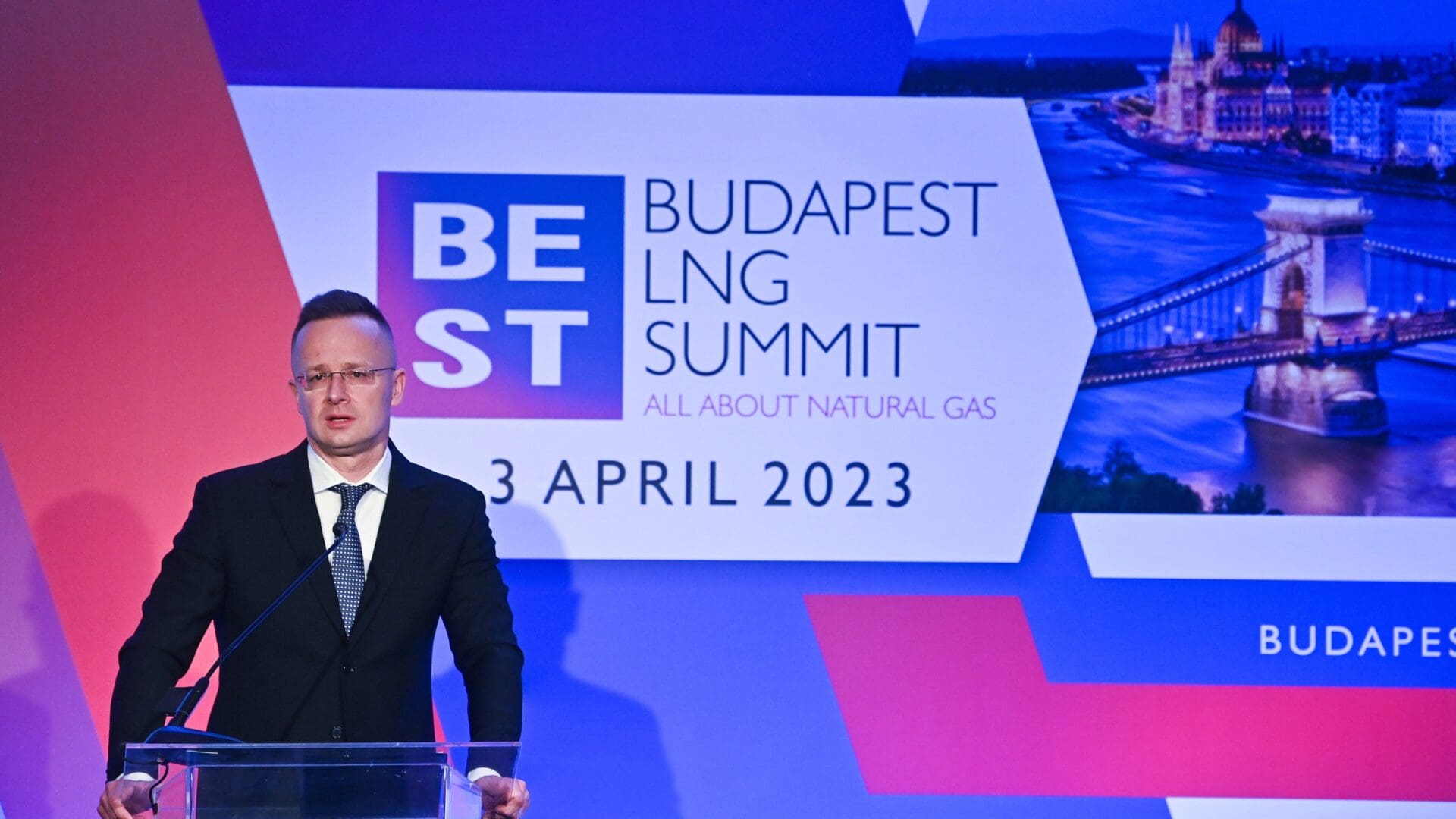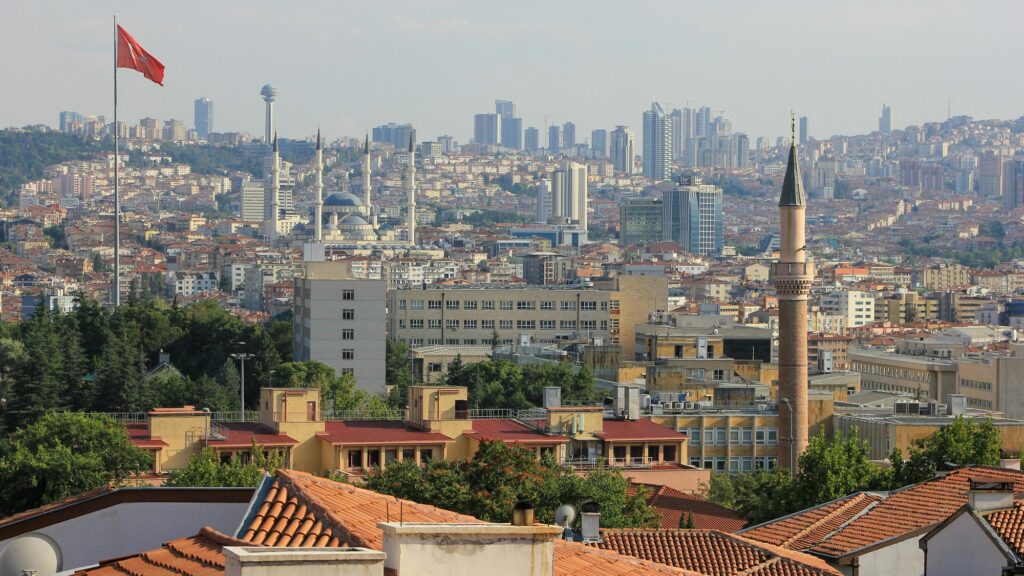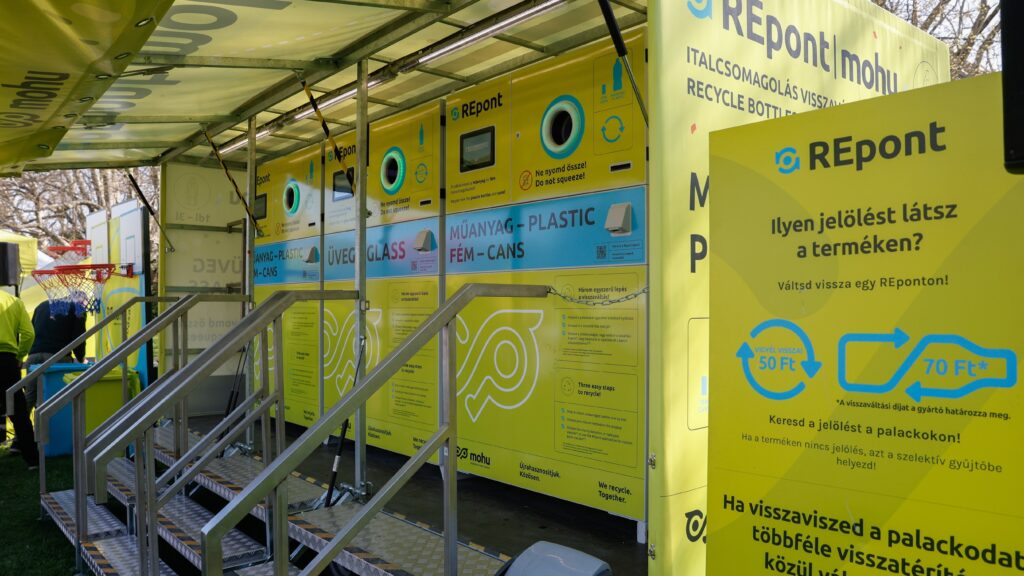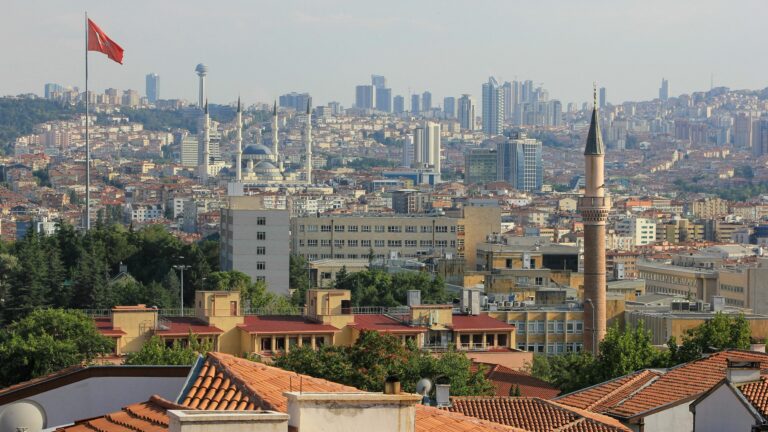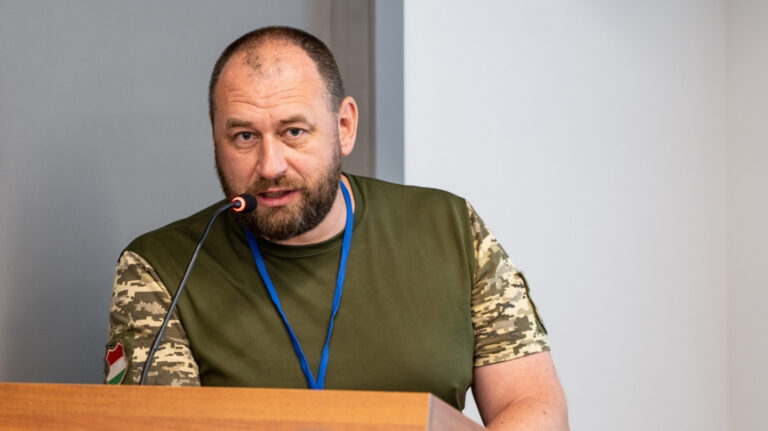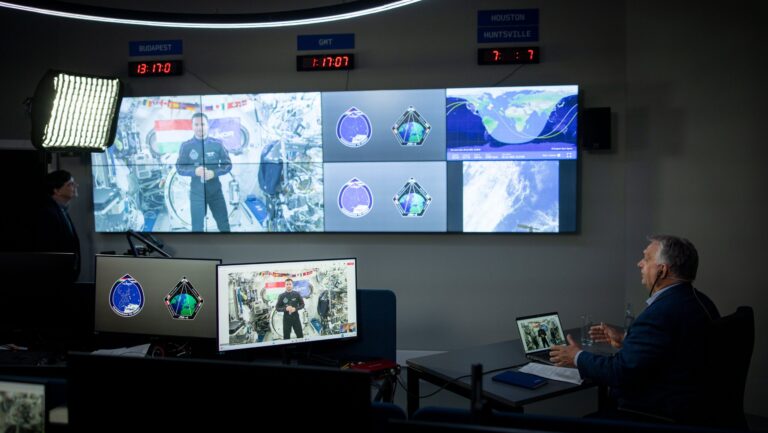The current energy market situation is lethal for European competitiveness, and the only solution would be to expand the available gas sources, focusing on the supply side instead of demand, Minister of Foreign Affairs and Trade Péter Szijjártó said on Monday.
According to a statement from the Ministry, the Péter Szijjártó remarked at the 4th Budapest LNG Summit conference that while hydrogen may replace gas someday in the future, for now, countries ‘need to survive somehow’. Therefore, the situation needs to be approached with a level head, keeping two feet on the ground. He emphasised in his speech that last year it became clear that energy security in Europe was an illusion, since it proved to be extremely fragile following the Russo-Ukrainian war. As he said, this is evident from the fact that due to the war in Ukraine and the wrong responses to it, the price of gas increased tenfold at one point.
The minister called the vulnerability of the energy infrastructure and the attacks on the Nord Stream 2 gas pipeline ‘insane’.
He declared that the sabotaging of Nord Stream 2 was a terrorist act committed against critical European infrastructure, and since then, there has been no independent international investigation into the matter, with the perpetrators still unknown. ‘Imagine the same thing happening in the United States, imagine the reaction!’, he said.
He recalled that a ‘huge wave of fake news’ swept across Europe as the continent was preparing for winter last year. Many spoke about the filling levels of gas storage facilities, but no one said anything about the filling levels relative to consumption, which provide a more realistic picture of the actual situations in the individual countries.
Péter Szijjártó pointed out that Europe is very lucky to have had a mild winter, and many politicians are satisfied with themselves for having successfully managed energy supply during the cold period, but it is too early to celebrate, because experts say the next heating season will be much more difficult for three reasons. First, at least 50 billion cubic metres of Russian gas will be missing from the network; second, the reopening of the Chinese economy after the pandemic will result in a significant increase in demand; and third, the new LNG capacities are limited and currently unsuitable for replacing existing Russian sources.
The minister emphasised that the current situation is lethal for Europe’s competitiveness, with gas prices seven times higher than in the United States and electricity three times higher than in China. ‘Under the current circumstances, the solution is to focus on the supply side instead of the demand and bring as much gas to the European market as possible,’ he nailed down. He expressed regret that the EU has extended its regulation aimed at reducing energy consumption by 15 per cent, but during the summer, when there is no heating, it will only be possible to save on industrial consumption.
The minister confirmed that
Hungary considers energy security as a physical, not an ideological or political issue,
and by diversification the government means the involvement of new sources, not changing the direction of dependency geographically.
‘It is not right to terminate well-functioning contracts with a reliable supplier for political reasons,’ he said. As the first option for diversification, he mentioned the inclusion of Azerbaijani gas, which has been secured by an agreement and will initially amount to 100 million cubic metre this year, followed by a long-term contract for two billion cubic metres per year, but this requires infrastructure development, he stressed.
The second option is further LNG sources from Croatia, Greece, Turkey, and Poland, but expanding capacity from all directions would also require expansion of network capacities, for which European Union funding is also essential, he added. In his speech, Szijjártó warned that although he has heard from some in Brussels that they do not want to spend any more money on gas infrastructure development, this would be a big mistake, as one must survive until new technologies emerge and keep both feet on the ground.
He reiterated that the government will continue its fight for infrastructure development, ‘otherwise it will be very difficult to guarantee security of supply for countries like ours.’

